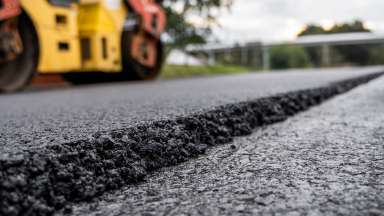On Tuesday, City Council authorized a $1 million contract with Pavement Technology to perform asphalt rejuvenation services. Besides cost savings, this can help reduce urban heat islands due to an additive that’s used for rejuvenation. This is another important step in implementing Raleigh’s Community Climate Action Plan (CCAP).
The City of Raleigh uses pavement rejuvenation to extend the life of city streets. Asphalt rejuvenator is a treatment that penetrates the pavement and restores flexibility and viscosity at a fraction of the cost of other preservation techniques.
Titanium Dioxide Additive and Its Impact
The treatment uses titanium dioxide additive. This additive has shown a 376-percent improvement in the pavement’s ability to reduce urban heat islands by reflecting heat energy. In addition, the additive greatly reduces pollution. Titanium-treated streets have shown the ability to photocatalyze 3,580 metric tons of CO2 equivalent per lane mile of treated pavement each year.
Multiple Benefits
Reducing urban heat, pollution, and green house gases are high-impact CCAP strategies that address equity and community health; build community resilience to the impacts of climate change; and help us meet our goal to reduce greenhouse gases 80 percent by 2050.
The product also extends the life of city streets, which means we are paving less often. That brings several benefits, including reduced emissions from the vehicles and equipment that perform the work, according to the City’s Sustainability department.
